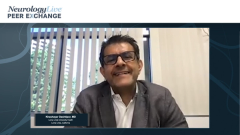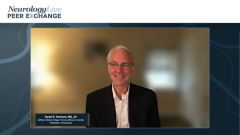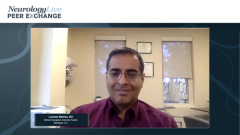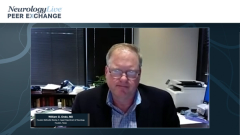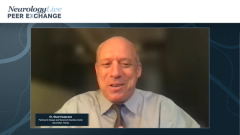
OFF Episodes in Parkinson’s Disease
Panelists have a conversation on the definition of OFF episodes in relation to Parkinson’s disease and how common OFF episodes are for patients.
Episodes in this series

Stuart Isaacson, MD: Welcome to this NeurologyLive® Peer Exchange titled, “Parkinson Disease On-Demand Morning Therapy.” I’m Dr Stuart Isaacson, director of the Parkinson’s Disease and Movement Disorders Center of Boca Raton, in Boca Raton Florida. Joining me today in this virtual discussion are my colleagues: Dr Laxman Bahroo, associate professor of neurology from MedStar Georgetown University Hospital in Washington, DC; Dr Khashayar Dashtipour, associate professor of neurology and basic sciences, and director of the Division of Movement Disorders at Loma Linda University in Loma Linda, California; Dr Dan Kremens, associate professor of neurology and medical co-director at the Comprehensive Parkinson’s Disease and Movement Disorder Center at the Sidney Kimmel Medical College at Jefferson University in Philadelphia, Pennsylvania; and Dr Bill Ondo, director of the movement disorders clinic at Houston Methodist Stanley Appel Department of Neurology in Houston, Texas.
We are going to discuss a number of topics pertaining to on-demand therapy for OFF episodes, and morning OFF episodes in particular, in Parkinson disease. When we think about OFF episodes in Parkinson disease, how common are they? How common are morning OFF episodes in particular?
Daniel E. Kremens, MD, JD: Before we can discuss how common they are we should define what we mean by OFF episodes because people use that term in a lot of different ways. When we talk about OFF episodes, we talk about when medications fail to provide the expected benefit and you see the reemergence of symptoms, and there are a number of different types of OFF. What do we mean by the morning OFF? It’s that morning akinesia, the so-called practically defined OFF state before we’ve taken our first dose of medication in the morning and that time for that medication to kick in and turn the patient back on. There’s also the so-called classic wearing OFF. Let’s say the patient has been taking their carbidopa/levodopa 3 times a day, it’s been working well for them. But then they come in and they start telling you, “Well, you know an hour before my next dose I know my symptoms are re-emerging. I can feel my tremor coming out. I can feel some slowness.” That’s the classic wearing OFF.
We then have delayed ON, that’s when the patient takes their medicine, and let’s say it normally kicks in in 20 minutes or so, but now sometimes it’s taking 40 minutes or an hour. And then we have dose failures, which is when the patient takes their medicine and they get no benefits from it. Then there are the unpredictable or sudden OFFs when the patient is ON and they’re suddenly OFF, and in a few minutes they might be back ON again. These are just different kinds of OFF episodes. They’re very common. We know from the survey that the Michael J. Fox Foundation did a few years ago where there was a telephone survey of over 3000 respondents, and 90% of the patients indicated that they were experiencing OFF episodes at least once a day. And more than 60% were having more than 2 episodes a day. In terms of morning OFF, it’s very common. The EUROPAR study found that about 60% of patients were experiencing morning OFF. This is really common and actually pretty debilitating for patients.
Stuart Isaacson, MD: Laxman, do you agree? Do you see a similar commonness of these problems in Washington?
Laxman Bahroo, DO: I completely agree. The OFF episodes are ubiquitous. I tell this to my patients that they’re everywhere. If you look for it, if you recognize it, if you’re able to vocalize symptoms of OFF to your health care professional, we can understand this as OFF. Some patients may not vocalize it. Some patients may expect this to be a normal part of their Parkinson symptoms. Some people may not have the language or the vocabulary for this, and these are some of the limitations that we have.
Stuart Isaacson, MD: Thank you all for joining me and for watching this NeurologyLive® Peer Exchange; I hope that you enjoyed the content. Please subscribe to our e-newsletters to receive upcoming Peer Exchanges and other great content right in your inbox.
Transcript edited for clarity.
Newsletter
Keep your finger on the pulse of neurology—subscribe to NeurologyLive for expert interviews, new data, and breakthrough treatment updates.

